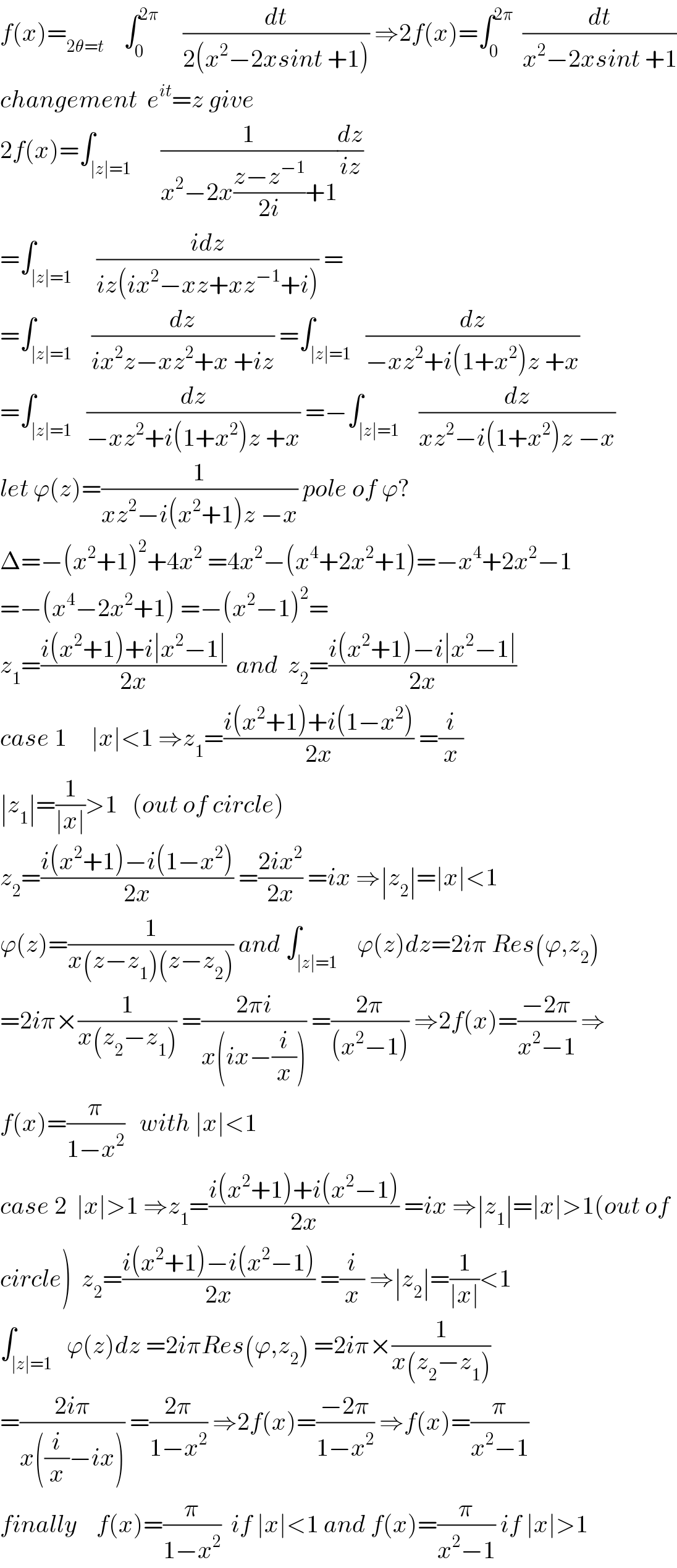Question Number 74513 by mathmax by abdo last updated on 25/Nov/19

Commented by mathmax by abdo last updated on 26/Nov/19

Answered by mind is power last updated on 25/Nov/19
![f(x)=∫^π _0 (dθ/((x−sin(2θ))^2 +cos^2 (2θ))) x≠1 since 2−2sin(2θ) =0 for θ=(π/2) f(x)=f(−x) we suppose x≥0 =∫_0 ^π (dθ/((x−sin(2θ)−icos(θ))(x−sin(2θ)+icos(2θ)))) =∫_0 ^π (dθ/((x−ie^(−i2θ) )(x+ie^(i2θ) ))) z=e^(2iθ) ⇒dz=2ie^(2iθ) dθ =∫_C (dz/(2iz(x−(i/z))(x+iz)))=∫_C (dz/(2i(xz−i)(x+iz))) poles are (i/x),−ix if x=0 f(0)=π f(−1)=∫_0 ^π (dθ/(2+2sin(2θ)))=(dθ/(2(1+2sin(θ)cos(θ)))) =∫_0 ^(π/2) ((1+tg^2 (θ))/(2(1+tg(θ))^2 ))dθ+∫_(π/2) ^π =[−(1/(2(1+tg(θ)))]_0 ^(π/2) +[((−1)/(2(1+tg(θ))))]_(π/2) ^π =0 if ∣x∣>1⇒∣(i/x)∣<1∈C f(x)=π.Res((1/((xz−i)(x+iz))),z=(i/x)) =π.(x/(x^2 −1)) x>1 ∣x∣<1⇒∣−ix∣<1⇒f(x)=πRes((1/((xz−i)(x+iz))),z=ix} =(π/(1−x^2 )) ∣x∣<1](https://www.tinkutara.com/question/Q74549.png)
Commented by mathmax by abdo last updated on 26/Nov/19

Commented by mind is power last updated on 26/Nov/19

